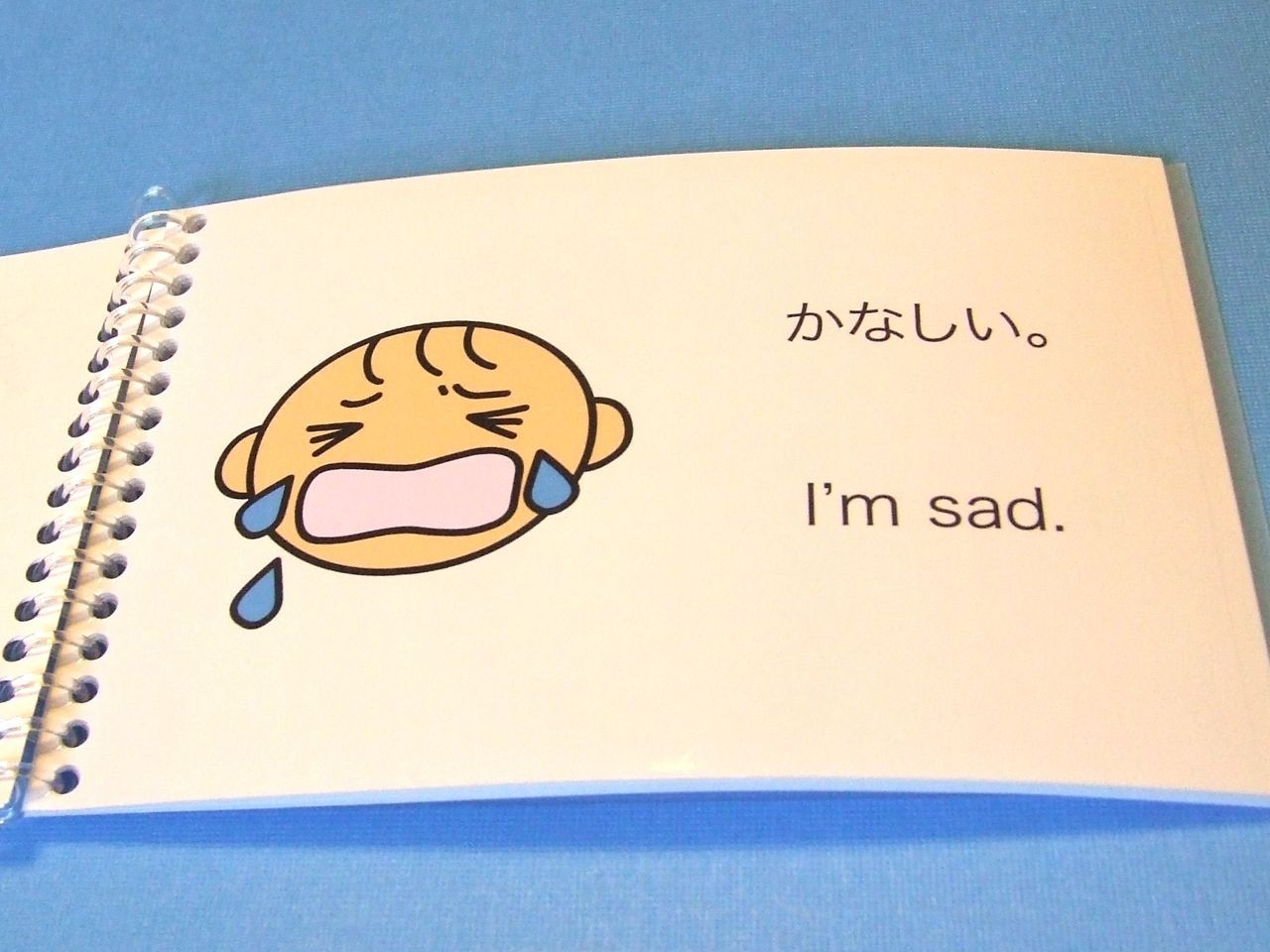- Common Japanese Feelings Vocabulary
- Basic Emotions
- More Complex Emotions
- How to Use Feelings Vocabulary in Sentences
- Using Emotions in Everyday Conversations
- Using Feelings in Formal or Written Situations
- FAQ About Feelings Vocabulary
- Practice and Use Japanese Feelings Vocabulary
- Practice Exercise
- Practice Through Dialogue
Learning vocabulary for emotions in Japanese is an essential part of improving your communication skills.
When you can accurately express your feelings, you can engage more easily in everyday conversations and gain a deeper understanding of Japanese culture. In this article, we’ll introduce you to the Japanese feelings vocabulary, how to use these words in real-life situations, and tips on how to speak more naturally and effectively in Japanese.
Common Japanese Feelings Vocabulary
Japanese has a rich variety of vocabulary for expressing emotions, from basic feelings to more complex ones. Here are some of the most frequently used words for emotions in Japanese:
Basic Emotions
- Happiness:
- 幸せ (しあわせ) - shiawase
- 嬉しい (うれしい) - ureshii
- Example: 「今日は嬉しいです!」(きょうはうれしいです!) - "Today, I feel happy!"
- Sadness:
- 悲しい (かなしい) - kanashii
- 落ち込む (おちこむ) - ochikomu
- Example: 「私はとても悲しいです。」(わたしはとてもかなしいです。) - "I am very sad."
- Anger:
- 怒る (おこる) - okoru
- 腹が立つ (はらがたつ) - hara ga tatsu
- Example: 「彼はすぐに怒ります。」(かれはすぐにおこります。) - "He gets angry easily."
- Worry:
- 心配 (しんぱい) - shinpai
- 不安 (ふあん) - fuan
- Example: 「この試験に不安です。」(このしけんにふあんです。) - "I am worried about this exam."
- Love:
- 愛する (あいする) - aisuru
- 好き (すき) - suki
- Example: 「私はあなたを愛しています。」(わたしはあなたをあいしています) - "I love you."
More Complex Emotions
- Guilt:
- 罪悪感 (ざいあくかん) - zaiakukan
- Joy:
- 喜ぶ (よろこぶ) - yorokobu
- Example: 「私はそのニュースを聞いて喜びました。」(わたしはそのにゅーすをきいてよろこびました) - "I was happy to hear that news."
- Regret:
- 後悔 (こうかい) - koukai
- Helplessness:
- 無力感 (むりょくかん) - muryokukan
- Excitement:
- 興奮 (こうふん) - koufun
- Example: 「その試合で興奮しました!」(そのしあいでこうふんしました!) - "I was so excited by the game!"
How to Use Feelings Vocabulary in Sentences
When learning Japanese, it’s not enough to just know the vocabulary. You need to know how to use these words correctly in real communication situations.
Using Emotions in Everyday Conversations
- Example in casual conversation:
- 「今日は嬉しいです!」(きょうはうれしいです!) - "Today, I feel happy!"
- 「私はあなたを愛しています。」(わたしはあなたをあいしています) - "I love you."
Using Feelings in Formal or Written Situations
- Example in letters or formal communication:
- 「この結果について心配しています。」(このけっかについてしんぱいしています) - "I am worried about this result."
- 「後悔の念が消えません。」(こうかいのねんがきえません) - "I can’t shake the feeling of regret."
FAQ About Feelings Vocabulary
How can I use feelings vocabulary in natural conversations?
It’s important to be mindful of the context and the situation. For formal settings, choose more polite or neutral words. In casual conversations, you can be more expressive with stronger words.
Are there words for feelings that convey stronger emotions?
Yes, there are words in Japanese that express stronger emotions, such as 怒る (okoru) for "anger" and 興奮 (koufun) for "excitement."
Why is it important to use feelings vocabulary correctly in Japanese?
Using the right vocabulary for emotions helps you communicate more naturally and clearly. It also helps you better understand the culture and communication style of the Japanese people.
Practice and Use Japanese Feelings Vocabulary
Practice Exercise
- Fill in the blank with the appropriate feelings vocabulary:
「彼は( )時々怒ります。」- "He ( ) sometimes gets angry."
Practice Through Dialogue
- Here's a sample dialogue using emotions vocabulary:
- A:「今日はすごく嬉しいです!」
- B:「本当に?それはよかったですね。」
Learning and using feelings vocabulary in Japanese not only improves your communication but also helps you understand Japanese culture better.
With the basic and more complex emotions we've covered in this article, we hope you feel more confident expressing your emotions in Japanese.
Don’t forget to practice regularly and expand your emotional vocabulary for more natural communication in real-life situations.








